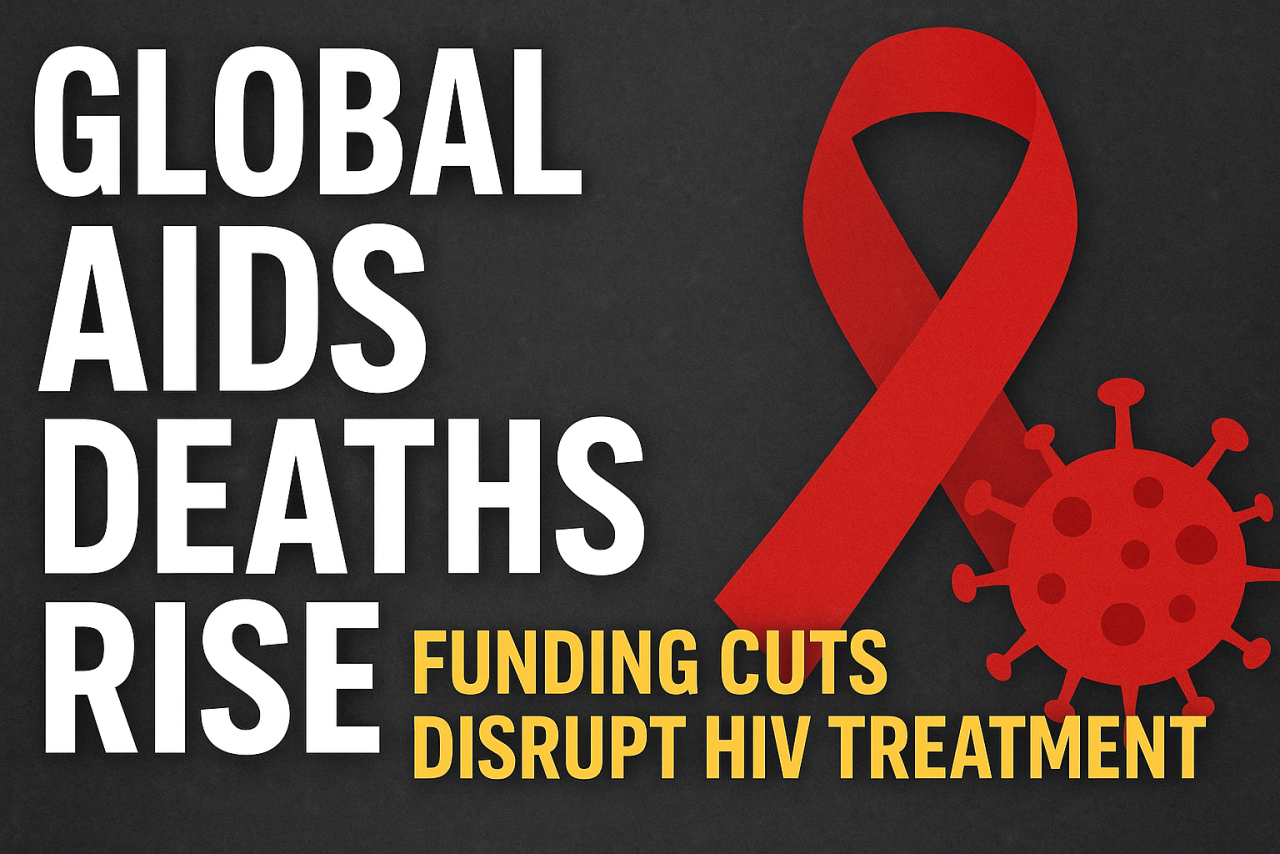
A new report from UNAIDS has raised serious concern about the growing number of AIDS related deaths across the world. According to the United Nations agency, millions of people are now facing limited access to life saving HIV treatment because of major cuts in international funding. The report says this funding crisis is undoing years of progress and putting global health goals in danger.
UNAIDS revealed that an unknown number of extra deaths have already occurred, and around 2.5 million people have lost access to medicine that helps prevent the spread of HIV. The agency linked this sharp rise to reductions in financial support for global HIV programmes. The situation worsened when the United States, which earlier contributed nearly three fourths of international HIV funding, paused almost all its support earlier this year. This sudden gap pushed the global AIDS response into what UNAIDS described as crisis mode.
The report explains that the shortage of funds has forced many local clinics to shut down or reduce their services. As a result, people living with HIV in several countries have lost access to treatment. The exact number of additional deaths is still being calculated, but community organisations have already reported disturbing trends.
The issue is not limited to the United States. Several European countries have also reduced their foreign aid programmes, partly due to pressure to increase defence budgets. This has created a chain reaction of shortages in health systems that heavily rely on international donors.
Although some HIV programmes have restarted with help from PEPFAR, the Presidents Emergency Plan for AIDS Relief, the overall flow of funding continues to decline. This is placing the global target to end AIDS as a public health threat by 2030 at serious risk, UNAIDS said.
UNAIDS Executive Director Winnie Byanyima told reporters in Geneva that the agency is working with at least thirty countries to strengthen domestic financing. The goal is to reduce dependence on foreign donors and stabilise HIV services. However, she also warned that the current funding gap is too large to close quickly and many challenges continue to block progress.
Currently, the UN estimates that 40.8 million people are living with HIV worldwide. Around 1.3 million new infections were reported in 2024. Between 2010 and 2024, AIDS related deaths dropped by more than half and new infections also fell sharply. However, UNAIDS cautioned that the gains made over the last decade are now at risk. Prevention services in particular have suffered greatly because of reduced funding.
The report found that 2.5 million people lost access to preventive HIV medicines such as PrEP by October 2025 as a result of donor cuts. Distribution of essential preventive supplies has also fallen sharply. Uganda recorded a drop of 31 percent in preventive medicine distribution, Vietnam saw a 21 percent decline and Burundi experienced a fall of 64 percent. Nigeria reported a 55 percent reduction in condom distribution between December last year and March this year.
UNAIDS has urged governments to act quickly and restore the financial support needed to protect vulnerable communities. The agency stressed that without strong and steady funding, more lives will be lost and the world will fall further behind in the fight against AIDS.





















